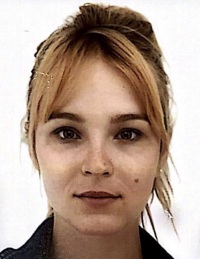Mondelli Group
Data Science, Machine Learning, and Information Theory
We are at the center of a revolution in information technology, with data being the most valuable commodity. Exploiting this exploding number of data sets requires to address complex inference problems, and the Mondelli group works to develop mathematically principled solutions.
These inference problems span different fields and arise in a variety of applications coming from engineering and natural sciences. In particular, the Mondelli group focuses on wireless communications and machine learning. In wireless communications, given a transmission channel, the goal is to send information encoded as a message while optimizing for certain metrics, such as complexity, reliability, latency, throughput, or bandwidth. In machine learning, given a model for the observations, the goal is to understand how many samples convey sufficient information to perform a certain task and what are the optimal ways to utilize such samples. Both the vision and the toolkit adopted by the Mondelli group are inspired by information theory, which leads to the investigation of the following fundamental questions: What is the minimal amount of information necessary to solve an assigned inference problem? Given this minimal amount of information, is it possible to design a low-complexity algorithm? What are the fundamental trade-offs between the parameters at play (e.g., dimensionality of the problem, size of the data sample, complexity)?
Team
Current Projects
Fundamental limits and efficient algorithms for deep learning | Non-convex optimization in high-dimensions | Optimal code design for short block lengths
Publications
Zhang Y, Ji HC, Venkataramanan R, Mondelli M. 2025. Spectral estimators for structured generalized linear models via approximate message passing. Mathematical Statistics and Learning. 8(3–4), 193–304. View
Fornasier M, Klock T, Mondelli M, Rauchensteiner M. 2025. Efficient identification of wide shallow neural networks with biases. Applied and Computational Harmonic Analysis. 77, 101749. View
Bombari S, Mondelli M. 2025. Privacy for free in the overparameterized regime. Proceedings of the National Academy of Sciences. 122(15), e2423072122. View
Emrullah Ildiz M, Gozeten HA, Taga EO, Mondelli M, Oymak S. 2025. High-dimensional analysis of knowledge distillation: Weak-to-Strong generalization and scaling laws. 13th International Conference on Learning Representations. ICLR: International Conference on Learning Representations, 2967–3006. View
Jacot A, Súkeník P, Wang Z, Mondelli M. 2025. Wide neural networks trained with weight decay provably exhibit neural collapse. 13th International Conference on Learning Representations. ICLR: International Conference on Learning Representations, 1905–1931. View
ReX-Link: Marco Mondelli
Career
Since 2025 Professor, Institute of Science and Technology Austria (ISTA)
2019 – 2025 Assistant Professor, Institute of Science and Technology Austria (ISTA)
2017 – 2019 Postdoc, Stanford University, Stanford, USA
2018 Research Fellow, Simons Institute for the Theory of Computing, Berkeley, USA
2016 PhD, EPFL, Lausanne, Switzerland
Selected Distinctions
2019 Lopez-Loreta Prize
2018 Simons-Berkeley Research Fellowship
2018 EPFL Doctorate Award
2017 Early Postdoc Mobility Fellowship, Swiss National Science Foundation
2016 Best Paper Award, ACM Symposium on Theory of Computing (STOC)
2015 Best Student Paper Award, IEEE International Symposium on Information Theory (ISIT)
2015 Dan David Prize Scholarship













